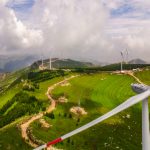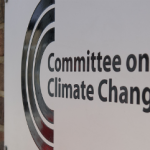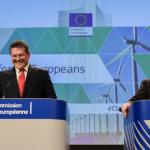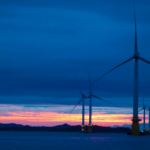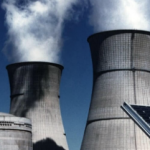The oil and gas market slump of 2015 brought extra pressure to bear on majors to reduce their breakeven barrel price. The quest for deeper efficiencies included a tidal shift toward digitalisation. According to Gaurav Sharma, vulnerable systems are in urgent need of upgrading and require constant protection at an estimated cost of $40 billion plus per annum. With existential external factors already putting the squeeze on investment, the growing … [Read more...]
OPEC is driving itself to irrelevance with farcical aplomb
It took months of delays but even before the cartel’s latest ministers meeting began in Vienna, the Saudis and Russians rendered it meaningless by largely deciding an outcome that failed to surprise the market. Not that long ago, a meeting of the Organization of Petroleum Exporting Countries (OPEC) carried great weight in the global energy market and was accompanied by intense anticipation. The powerful oil producer’s cartel at one point held … [Read more...]
Grid-scale batteries: further price drops result in concrete investments
With so much focus on renewable gas and heat as a means of offering dispatchable power it was interesting to note ScottishPower’s announcement of a new, gigantic battery storage facility. Lest we forget, battery energy storage is one of the fastest-growing sectors in the clean energy field and it is scaling up at an astonishing rate, not just in terms of overall capacity but also in terms of the size of individual projects, as the extent of the … [Read more...]
Investing in renewables in China: relatively good times
With the Chinese state increasingly confident of its renewable energy technologies and manufacturing, European firms are finding conditions right to invest in the sector there. Joe Mitton looks at the conditions for investors, and why EU-Chinese energy partnerships must not be caught up in the US trade war. Energy Post’s Matthew James spoke to Sebastian Meyer, Vice President at EDF Renewables, about his experiences. To read FULL ARTICLE login … [Read more...]
Net Zero UK: chance for Parliament to restore international leadership credentials
The UK may be in turmoil politically thanks to Brexit, but it has revived its efforts to take a leadership position on climate change, after the Committee on Climate Change (CCC) recommended that the government adopt a new target of net-zero greenhouse gas (GHG) emissions by 2050, a tightening of the current goal to cut emissions by 80% from 1990 levels. Mike Scott reports for Energy Post … [Read more...]
NECPs – Analysis: EU ideals coming up against political realities
The European Union is trying to maintain its leadership on climate change with its Clean Energy for All Europeans package, which aims to make the EU climate neutral by 2050. The mechanism for achieving this target is member states’ National Energy and Climate Plans (NECPs). Mike Scott considers the plans, how Germany is moving towards an "Eastern European" energy policy and how the upcoming elections could dilute EU climate policy overall... … [Read more...]
New “Gas for Climate” scenarios: can green gas and hydrogen save gas pipelines?
Gas has a key role to play in decarbonising the energy sector. Until a comprehensive clean energy network can accommodate variable renewables using storage, baseload power will be needed. Natural gas is a lower carbon option than coal, so there is a strong case for it to be the first-choice bridging fuel towards a net-zero energy economy. However, exactly how much gas, what type of gas and how existing infrastructure can store energy in the form … [Read more...]
East Mediterranean gas finds: EU energy bonanza or geopolitical headache?
Some of the world’s largest natural gas reserves have been discovered off Cyprus. One of the questions being addressed at this year's CERA Week is, could these massive finds (totalling more than 70 trillion cubic feet!) be the answer to any perceived over-dependency on Russian gas imports to the EU? Maybe, maybe not. Geopolitical tussles could scupper the realisation of these much-needed resources for Europe. Whilst the potential is there, it may … [Read more...]
EU election risk: policymakers should go for real decarbonisation now while efficiency savings can help
With elections in May, the balance of opinion in Parliament is a climate policy risk factor on the minds of many in Brussels. The national draft 10-year energy plans, just in to the Commission, project widespread growth in costlier renewables. But populists who see climate as a globalist rather than nationalist-first agenda may prove hard to bring on side with an expensive and disruptive transition. The public will be influenced by climate … [Read more...]
Virtual power plants: a story of market rules and smartgrids
Access to the grid-balancing market is competitive and carefully regulated. Green electricity from distributed and behind-the-meter renewable assets is already being traded on wholesale and balancing markets. The assets come in all shapes and sizes: roof-top solar, farmyard biofuel installations, EV and home battery systems, community energy projects, wind installations and heat pumps to name but a few. When they are pooled, by aggregators, they … [Read more...]
Clean air transport: batteries or biojet or both – but let’s get on with it
In his last article for Energy Post, Mike Scott looked at how airlines are under increasing pressure to reduce their greenhouse gas emissions rather than offsetting them as they do now. How can it be done? There is no one-size-fits-all solution for the varied size of aircraft and flight distances but that should be no excuse. Battery innovation offers solutions for some cases whilst biojet (aviation biofuel) can fill many of the remaining gaps. … [Read more...]
Airline emissions: pressure is on to reduce, not offset
Oil and gas, shipping, utilities, automotive – the list of sectors that investors have turned their spotlight on to examine their impacts on climate change is growing all the time. The latest to come under pressure is aviation. The airline sector currently accounts for 2% of global CO2 emissions and 12% of transport-related CO2 emissions and its share of total emissions is growing fast. In addition, aviation has climate impacts beyond CO2 … [Read more...]
Green Oil: second wave of investment in low-carbon assets is substantial but hardly tidal
Oil majors are under significant pressure from investors to develop climate-friendly business areas but less than 1.5% of their combined investment budgets is expected to go into low-carbon assets globally this year. However, 70% of that is set to come from European oil companies who are reacting positively to market signals by participating in coordinated industry schemes designed to help meet Paris targets. Here is an overview of some of the … [Read more...]
Sails make a comeback as shipping heads for complete decarbonisation by 2035
Last year’s ITF report asserts that an almost complete decarbonisation of shipping could be achieved by 2035 using currently known technologies. Whilst LNG is gaining momentum, hydrogen, ammonia and biofuels could be more sustainable means of delivering much of the required reductions, complemented by a mix of electronic propulsion and wind assistance. The message, according to independent journalist Eric Marx, is “Hold on. There’s a decade of … [Read more...]
Can nuclear compete for a bigger role in the transition?
With plans to phase out coal-fired generators in most of Europe, nuclear is trying to compete with gas to become the most viable baseload power source to accompany renewables on the path to net-zero emissions. Both technologies have their advantages. Gas is competitively priced while nuclear generates power with almost no emissions. Right now, gas's cost advantage is evidently great enough to tip the balance. If nuclear advocates are to … [Read more...]





